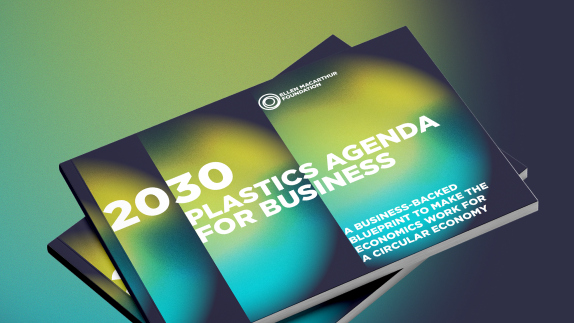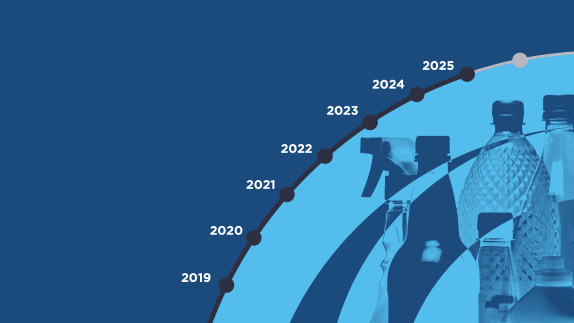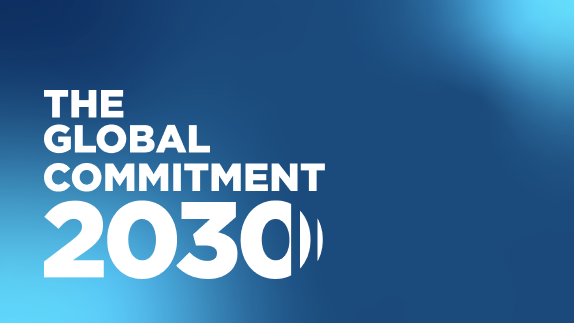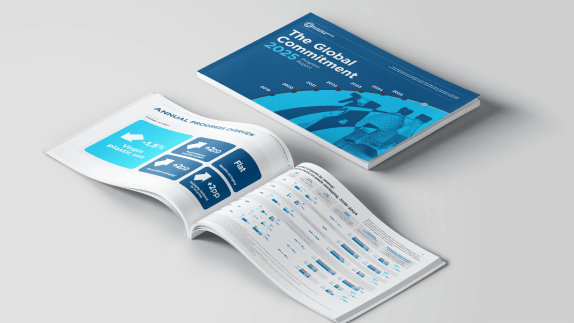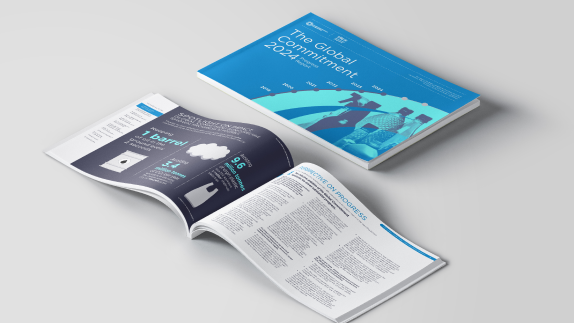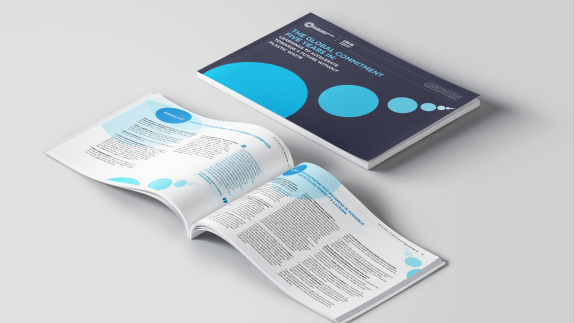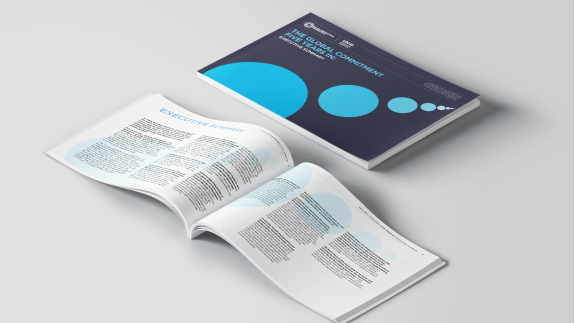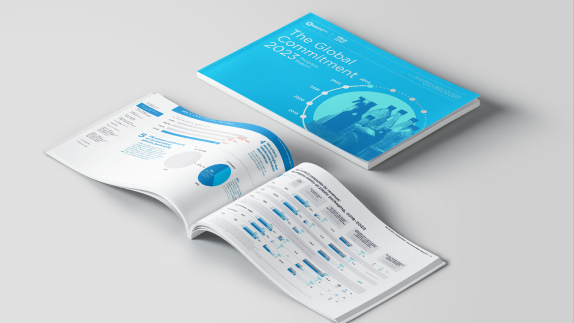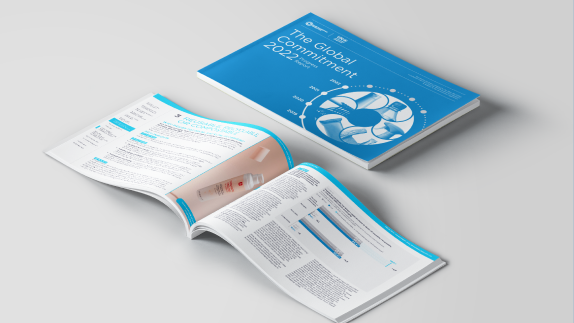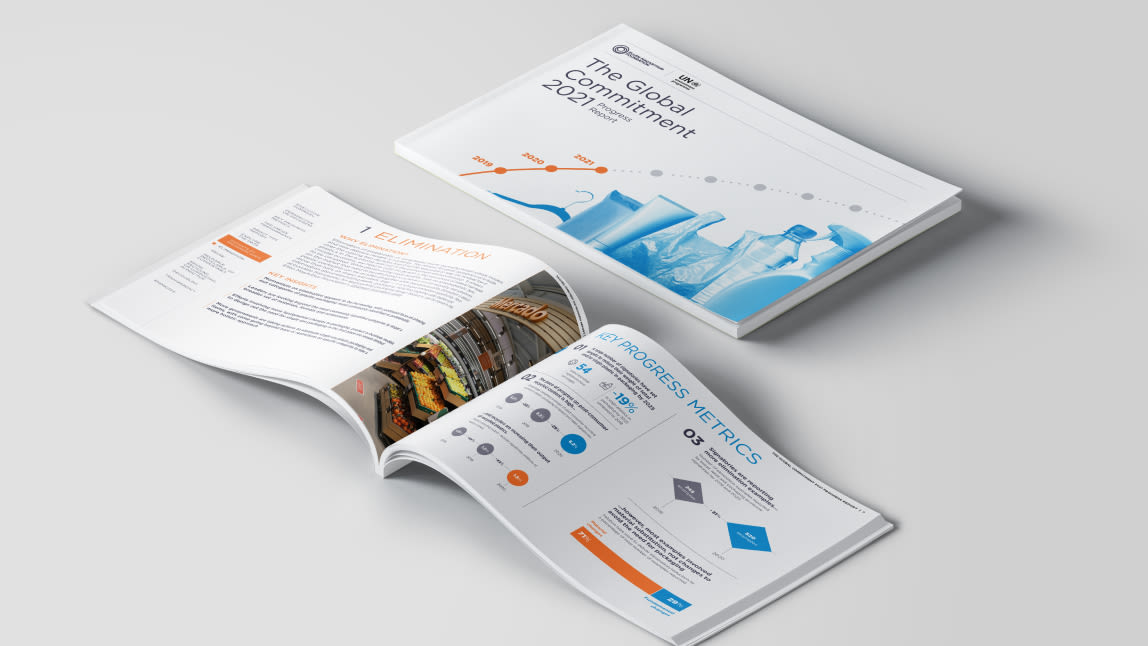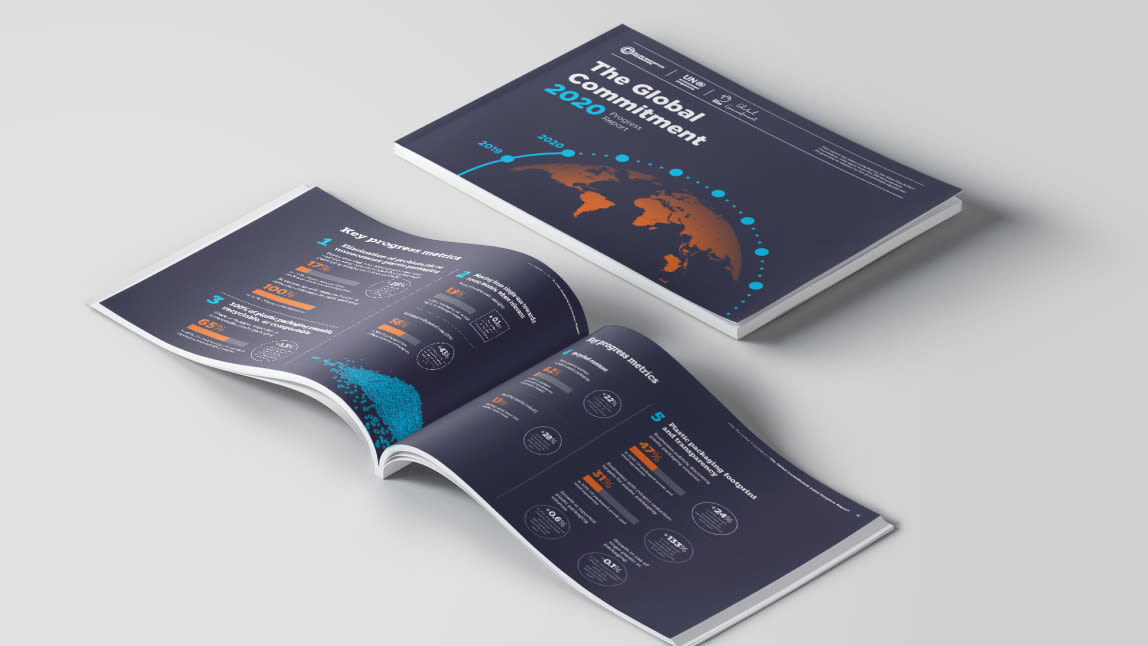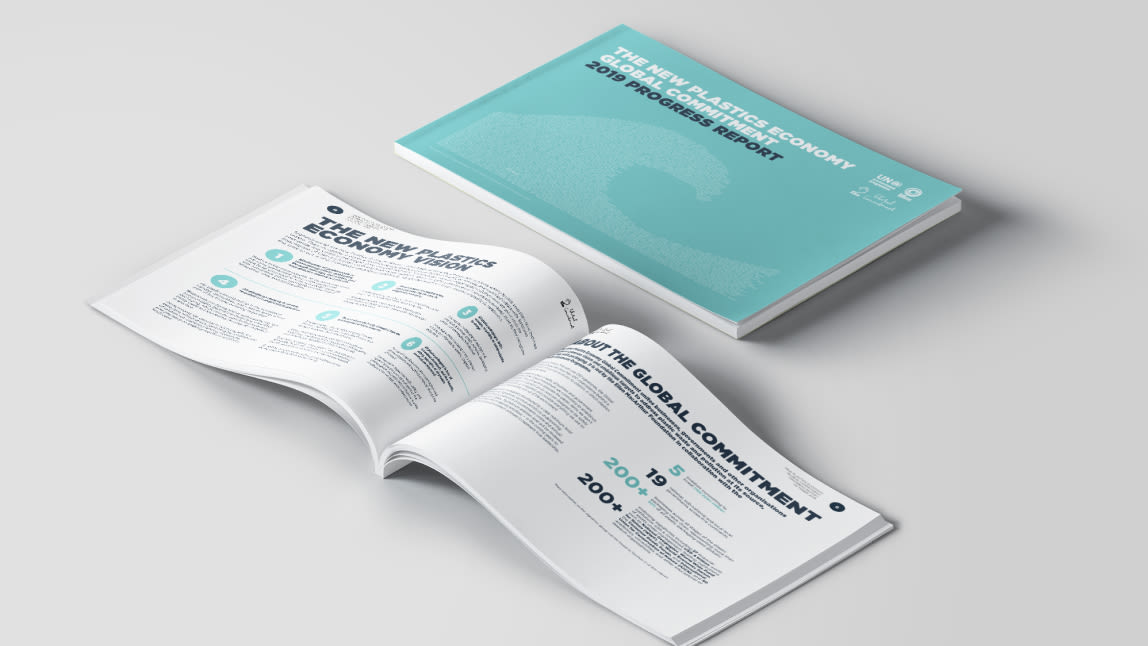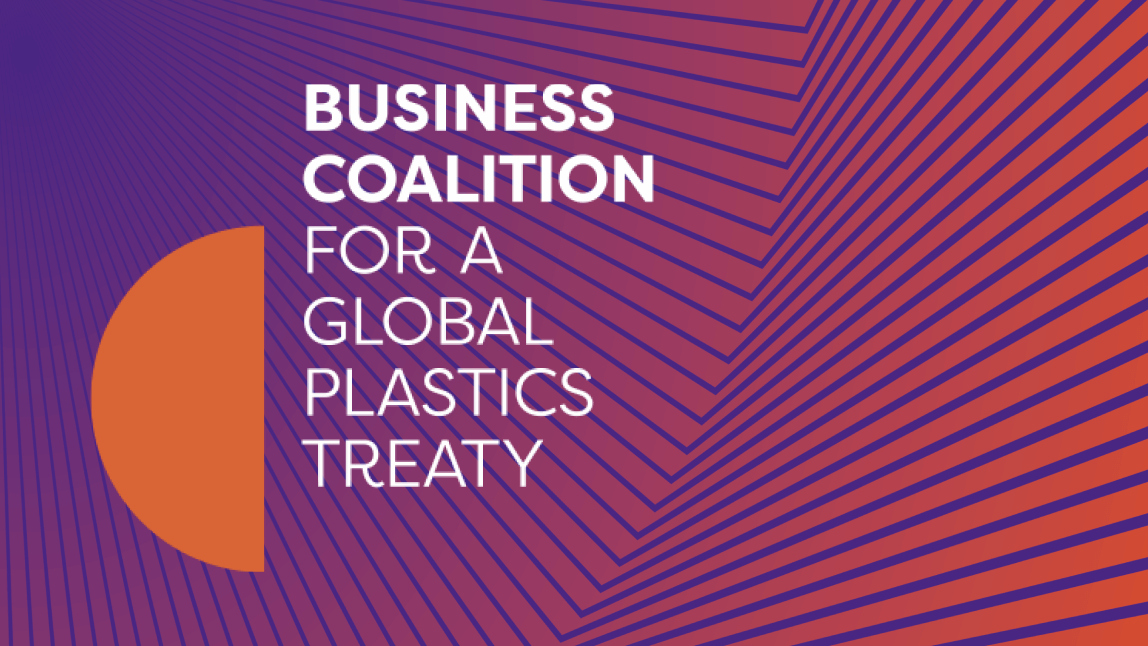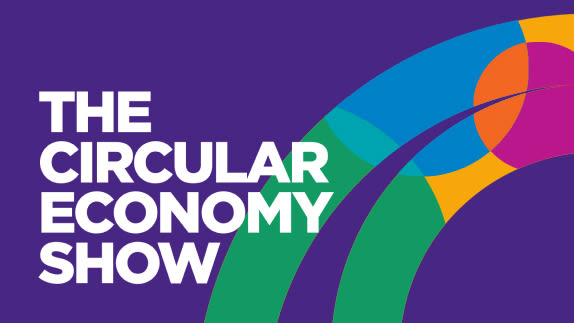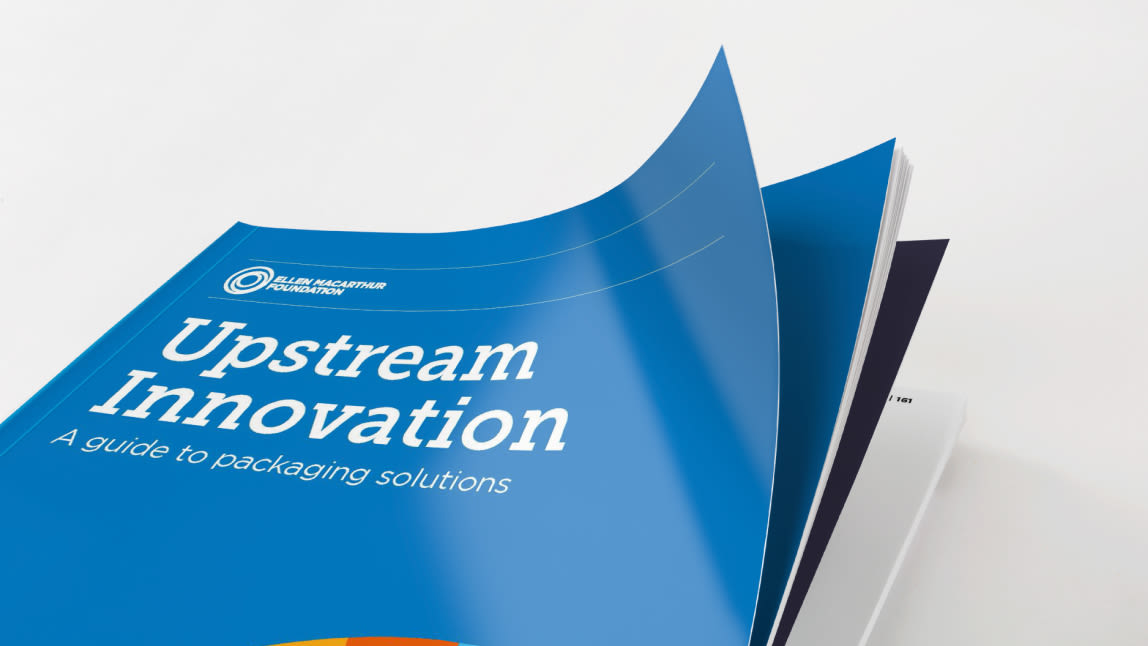The Global Commitment, established in collaboration with the UN Environment Programme, is the largest global voluntary effort on plastic waste and pollution, with 1200+ organisations from across the world united behind a common vision.
With its first chapter ending in 2025, businesses are now recommitting to 2030. This is a powerful way to ensure industry leaders remain aligned on a common direction and report transparently on progress towards it.
Apply to sign up to the Global Commitment 2030.


Progress is possible
Global Commitment signatories representing 20% of all plastic packaging have outperformed the rest of the market across all target areas where comparable data exists, while continuing to be competitive in the market and sell to billions of people across the world. Together, they have avoided the use of 14 million tonnes of virgin plastics — equivalent to keeping one barrel of oil in the ground every second. They have tripled their use of recycled content and avoided 7.8 million tonnes of CO2 per year. The signatories’ leadership has allowed them to inform and stay ahead of, rapidly strengthening policy around the world.


The Global Commitment 2030
Building on this progress, businesses representing 20% of the plastic packaging market have recommitted to the next phase of the Global Commitment, setting 2030 targets and publicly reporting on their progress. This initial group of businesses is expected to expand during the 12-month sign-up window.
The Global Commitment is now more explicitly embedded in a broader market transformation approach, recognising individual business action is a critical component, but not enough by itself. It is therefore complemented by a programme of collaborative action and collective advocacy to unlock systemic barriers and help signatories achieve their goals, as outlined in the Foundation’s 2030 Plastics Agenda for Business.
If you are unable to view the signatories table above, please visit the 2030 signatories web page
Unilever is proud to build on its longstanding partnership with the Ellen MacArthur Foundation and support this next chapter of the Global Commitment. Ending plastic pollution and keeping plastic in circulation requires innovation, infrastructure and enabling policy, combined with focused, collective action and advocacy right across the plastics value chain as identified in this 2030 Plastics Agenda.
Pablo Costa, Global Head of Packaging, Digital and Transformation, Unilever
Amcor became a founding signatory of the Global Commitment in 2018 to drive and inspire positive change. We’ve seen that bold ambitions and consistent action do make a difference. As a Global Commitment 2030 signatory, we will continue to deliver more sustainable packaging solutions while advocating for regulation that enables packaging circularity possible sooner and at scale.
Peter Konieczny, CEO, Amcor
As a Global Commitment signatory, SC Johnson has met its 2025 goals by cutting virgin plastic use by 33% and increasing post-consumer recycled (PCR) content to 25% across plastic packaging. By 2030, we’re targeting 55% PCR and a 55% reduction in virgin plastic from 2018 levels. Just as importantly, we’re advocating for strong Extended Producer Responsibility (EPR) laws—because real progress demands united action from companies, governments, and the public.
Fisk Johnson, Chairman and CEO, SC Johnson

